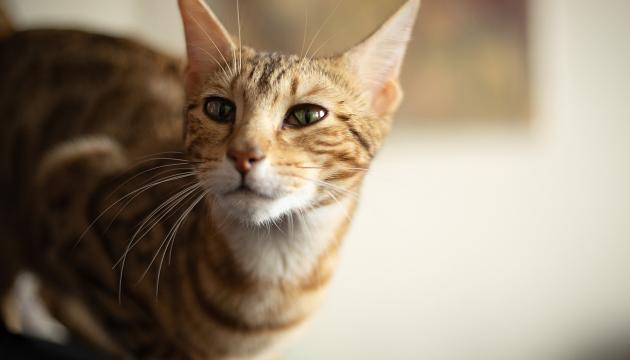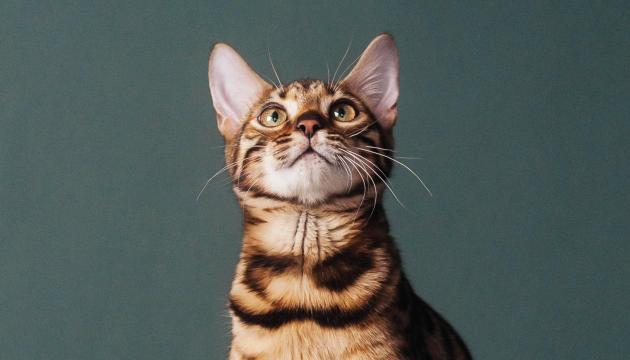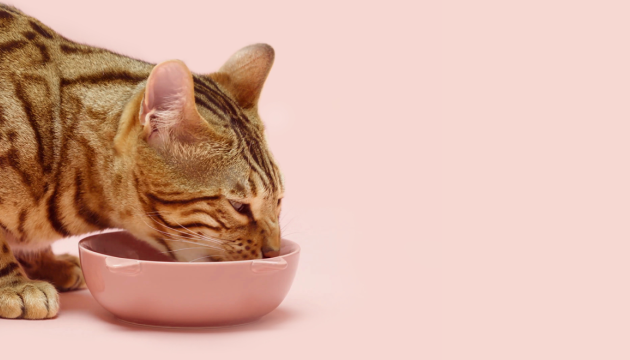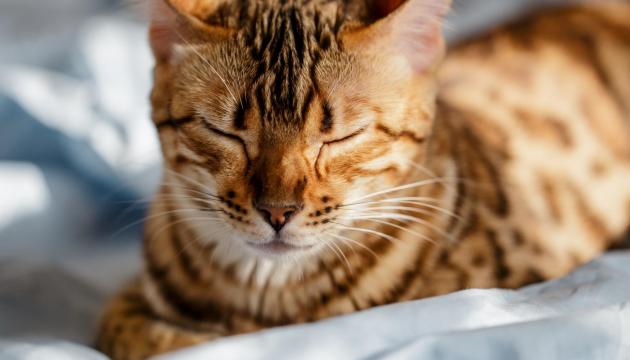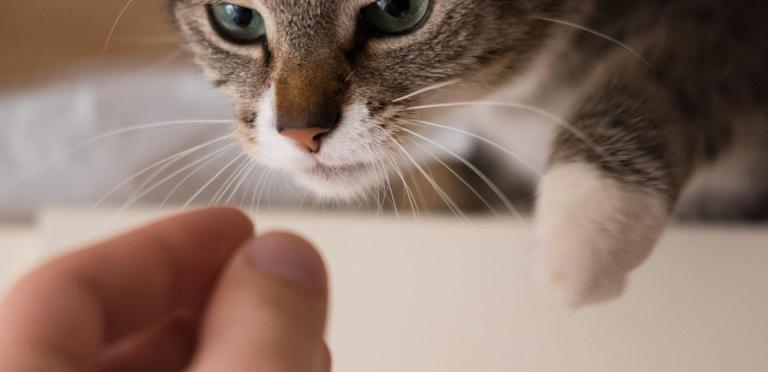

An obese cat – Tips for planning a healthy diet
An obese cat faces more than just a few extra kilos – excess weight can lead to serious health risks, including heart disease, diabetes, and urinary tract problems. It also means your feline companion may live a shorter life compared to a cat with a healthy weight.
If you are concerned about having an obese cat at home, you are not alone. Obesity is the most common nutrition-related issue in cats today. In fact, some studies suggest that up to half of all domestic cats are overweight.
Helping an obese cat lose weight takes commitment, but the rewards are worth it: a more energetic, healthier cat and possibly even more years together. Read on for practical tips to support your cat’s weight loss journey. Or, if you are looking for something specific, jump to a section below:
- Is my cat obese?
- Common reasons for feline obesity
- Cat weight loss and feeding tips
- Weight management with PrimaCat
Is my cat obese?
Here are four easy ways to tell if your cat may be an obese cat. If you recognise any of these signs, a controlled weight loss plan could help your cat regain vitality.
- Can you feel your cat’s ribs? On a healthy-weight cat, the ribs can be felt under a thin layer of fat when you gently run your hand along its side.
- Can you see your cat’s waist? From above, your cat’s waist should form a gentle inward curve. If it is hard to spot, your cat might be carrying extra weight.
- Does your cat move easily? Excess weight can put stress on joints, making it harder or more painful for a cat to move, jump, or play.
- Is your cat less active than before? An obese cat may sleep more, play less, and seem generally less interested in activity.
It is also important to assess muscle tone. In a well-conditioned cat, the spine is not visibly prominent but can be felt when gently pressed. This is especially useful when checking long-haired cats, whose thick fur can hide physical changes.
Why is my cat gaining weight?
Obesity does not happen overnight. Understanding what causes weight gain is the first step toward helping an obese cat become healthier.
Overfeeding
Many owners unintentionally give their cats too much food. After sterilisation or as a cat ages, energy needs drop – sometimes by as much as 25 to 50 percent. If feeding habits stay the same, weight gain is likely. Indoor cats, especially neutered ones, are more prone to weight gain. Without stimulation, they may move less, burn fewer calories, and put on weight over time.
If your cat is elderly or managing a chronic condition, consult a veterinarian before making major dietary changes.
Inappropriate food choices
Cats are obligate carnivores. They do not need carbohydrates, yet many dry foods are high in them. Combined with free feeding – when food is left out all day – this can encourage overeating out of boredom or stress. Foods high in fillers, added sugars, or lacking in protein can quickly lead to an obese cat. Extra calories are stored as fat, which also disrupts hormones and natural satiety signals.
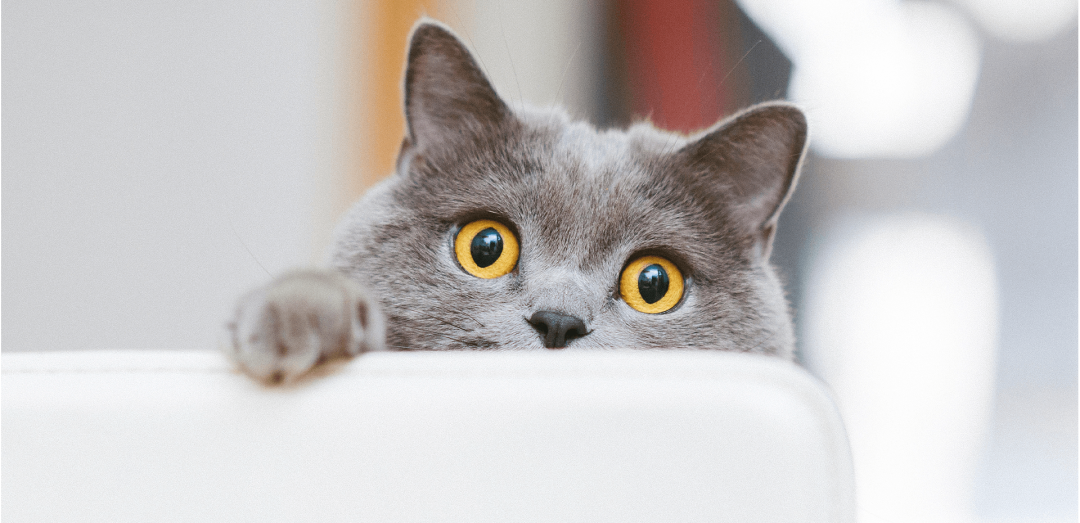
Simple changes for safe weight loss
Helping an obese cat lose weight does not require extreme measures. A few smart changes to diet and daily habits can make a big difference.
1. Focus on protein – cut the carbs
Protein helps your cat feel full. If food is low in animal protein, the cat will need to eat more of it to meet nutritional needs – and that means extra calories. Choose food rich in meat and low in unnecessary carbohydrates. Always opt for sugar-free recipes.
Change your cat’s diet gradually to avoid digestive issues. See our step-by-step tips for a smooth food transition.
2. Do not fear fat – just choose wisely
Fat is essential. It helps with vitamin absorption, supports skin and coat health, and can actually help your cat feel satisfied with less food. Rather than cutting fat drastically, monitor overall calorie intake and prioritise food with balanced nutrition.
Aim for a safe weight loss of no more than 1 percent per week. Too-rapid weight loss can cause muscle loss or even dangerous liver conditions such as hepatic lipidosis.
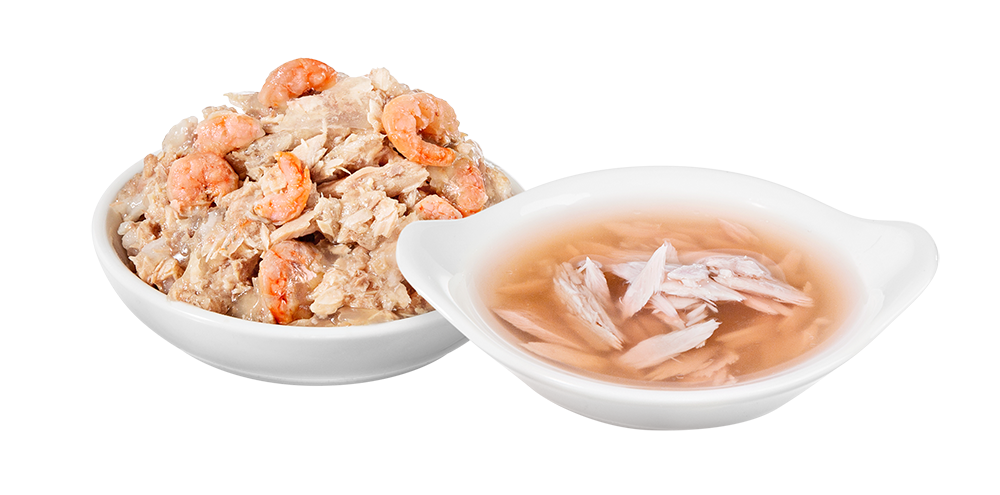
3. Make wet food the main event
Wet food has a high moisture content and fewer calories, which means your cat can enjoy a satisfying meal without overeating. It also supports hydration, flushes the urinary tract, and can help reduce the risk of bladder issues – a common concern for the obese cat. Learn more about urinary tract infection in cats.
PrimaCat offers specially developed wet food for sterilised cats, including our popular gravy assortments – a tasty way to support your cat’s health. Discover more!
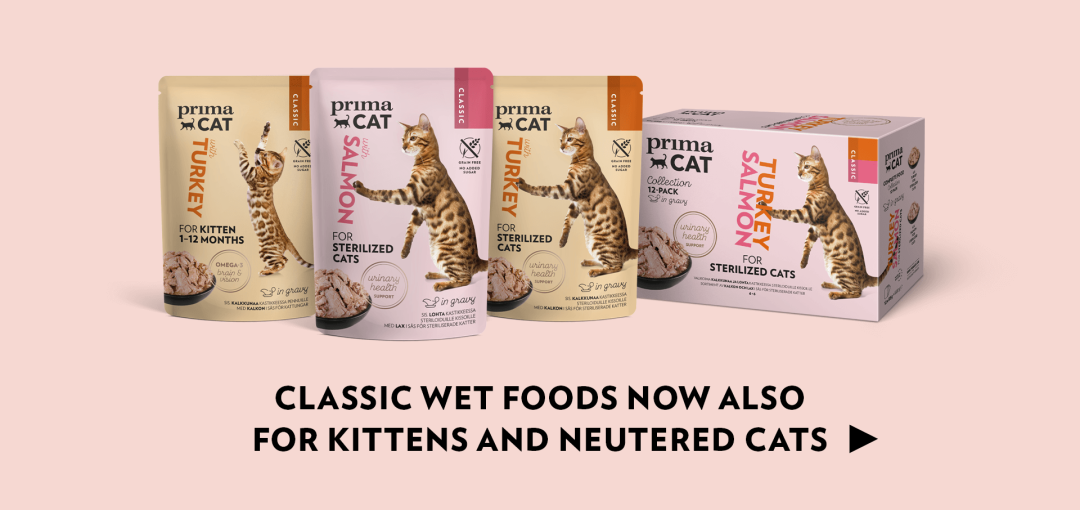
4. Eliminate unnecessary treats
Treats can be a major source of hidden calories. Remove extras from your cat’s routine. If you must use treats, for example for giving medicine, choose protein-rich, sugar-free options – or even your cat’s regular kibble.
Remember: just one slice of cheese can provide up to 10 percent of a four-kilogram cat’s daily calorie needs.
5. From free feeding to structured mealtimes
Changing how your cat is fed can significantly support weight loss. Free feeding means that the cat has constant access to food – for example, a bowl of dry food left out all day, from which the cat can eat independently whenever it likes. Meal feeding, on the other hand, involves offering food at specific times as individual meals, with no food left out between them.
Meal feeding can be an especially effective approach when managing the diet of an obese cat. However, if a cat owner chooses to switch from free feeding to meal feeding, it is important to make the transition gradually. For instance, you could begin by removing the food bowl for a couple of hours during the day and slowly increase the time without food. You can read more about the benefits and drawbacks of different feeding methods in our article.
It is recommended to weigh your cat every one to two weeks. Make a note of the result each time, so you can easily monitor your cat’s weight development.
6. Encourage natural movement
Physical activity is essential for a healthy, happy cat. Stimulating mealtimes with puzzle feeders or hiding kibble around the home can awaken your cat’s inner hunter. Toys, wand games, or even supervised outdoor walks provide mental stimulation and much-needed exercise – perfect for an indoor or sterilised cat prone to weight gain.
Help your cat thrive with PrimaCat
PrimaCat Classic wet food is specially formulated for sterilised cats and cats needing weight management support. Try our Turkey in gravy for sterilised cats or explore the delicious Salmon in gravy for sterilised cats.
Why choose PrimaCat wet food?
- Made with a 50/50 ratio of tender meat strips and flavourful gravy
- Formulated for neutered cats’ specific nutritional needs
- Supports a healthy urinary tract
- Free from grains and added sugars
- Responsibly produced in Europe
With a few smart changes and the right nutrition, your obese cat can enjoy a healthier, happier life. PrimaCat is here to help you every step of the way.
